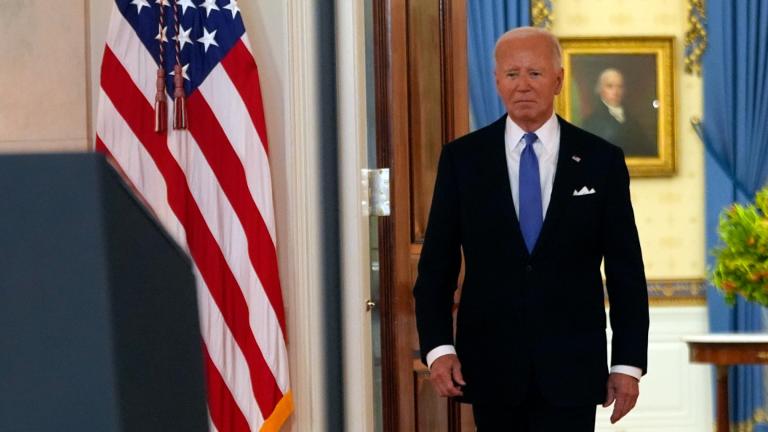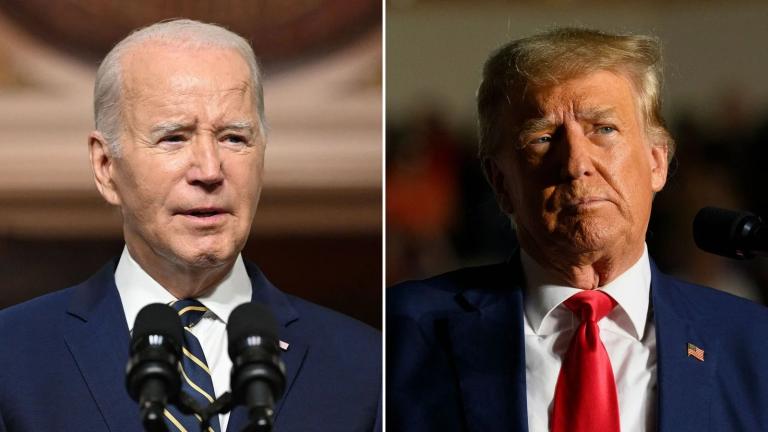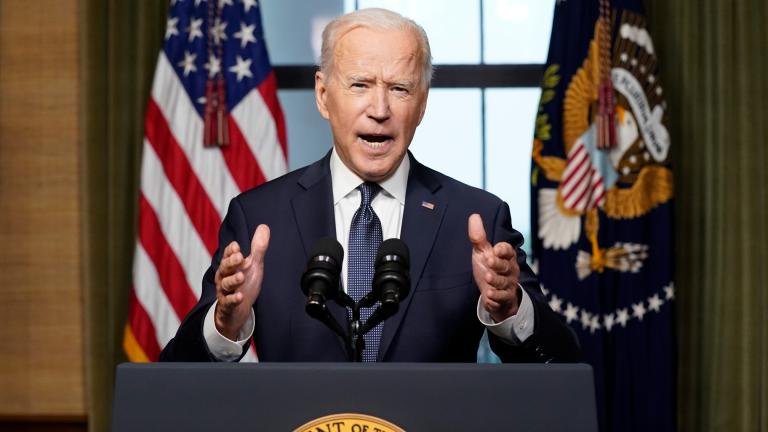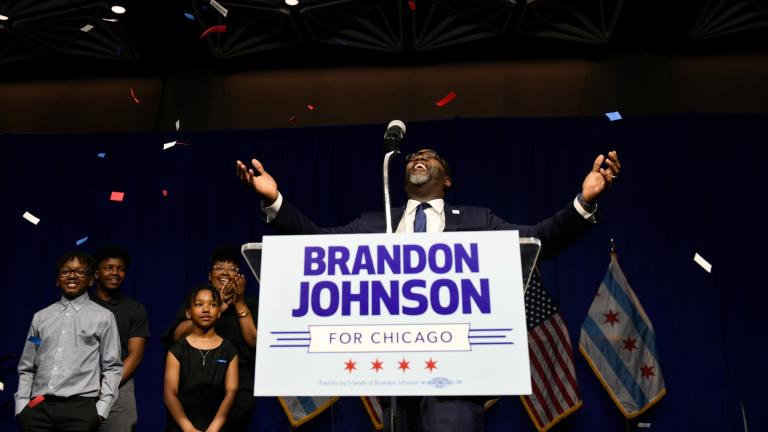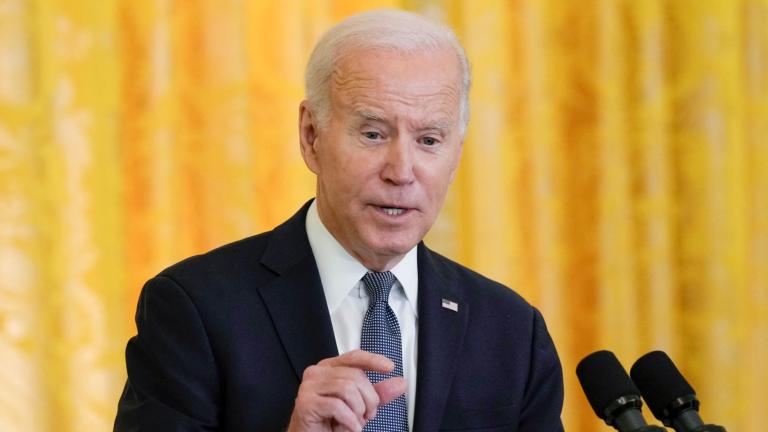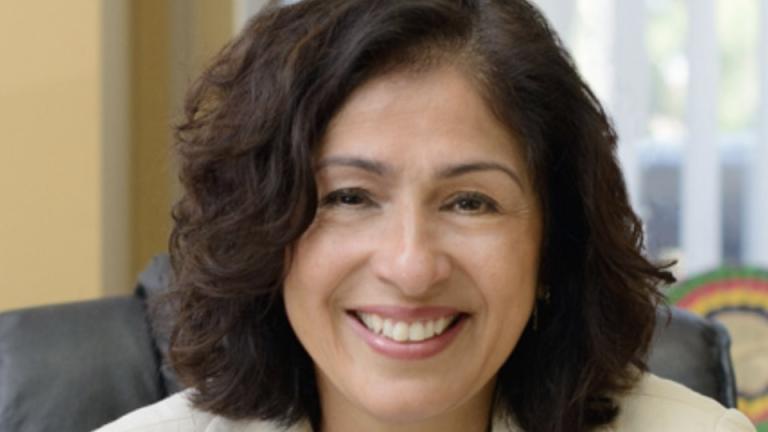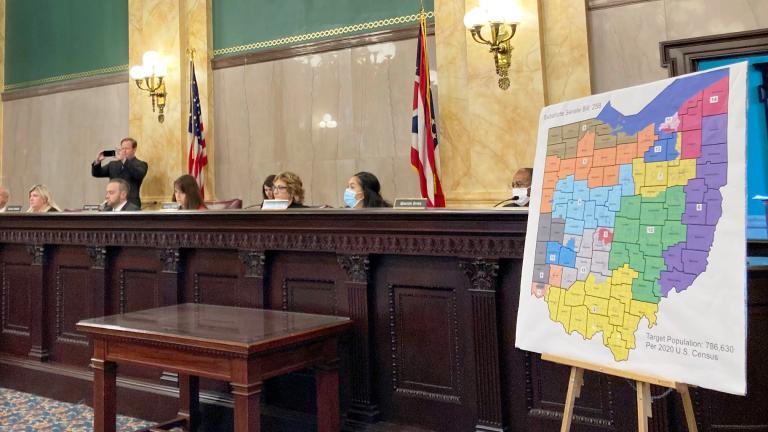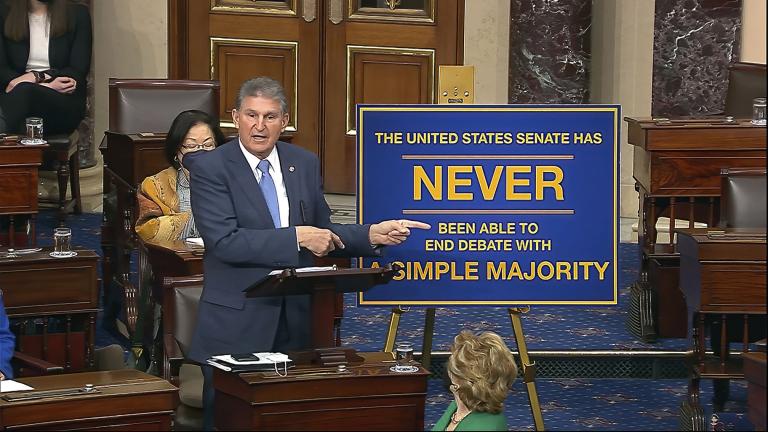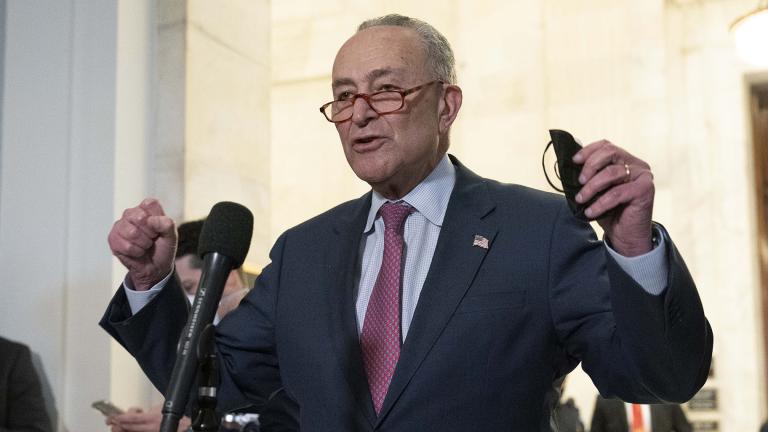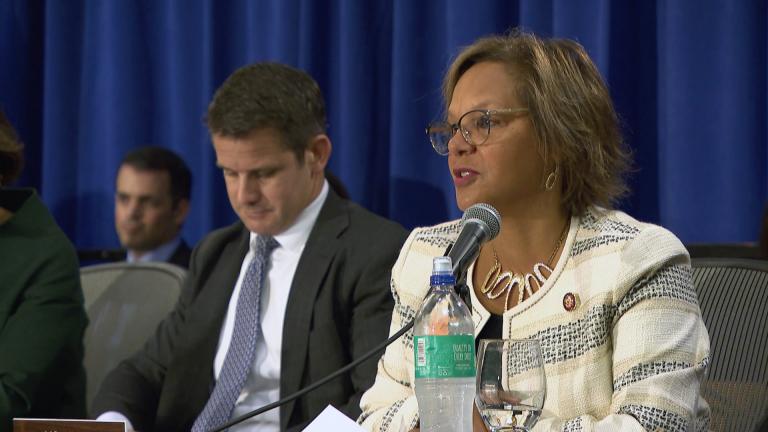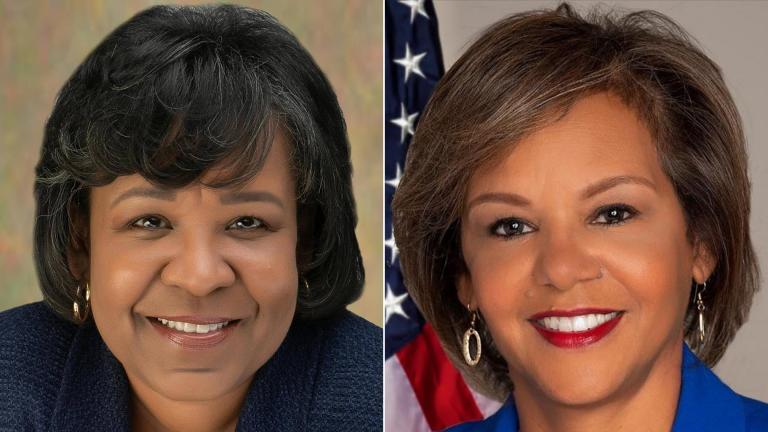The Democratic president has signaled he has no intention of dropping out of the race despite the halting and uneven debate delivery that threw a spotlight on questions about Biden’s age. But as Democrats make the case the stakes of the election are momentous they’re wrestling with how to approach the 81-year-old.
Democratic Party
Biden’s campaign entered February with nearly $56 million cash reserves in his main campaign committee compared to a little more than $30 million in the coffers of Trump’s equivalent account.
The announcement, in a three-minute video, comes on the four-year anniversary of when Biden declared for the White House in 2019, promising to heal the “soul of the nation” amid the turbulent presidency of Donald Trump — a goal that has remained elusive.
In Chicago, a former teacher’s union organizer unexpectedly won the mayor’s race. In St. Louis, progressives secured a majority on the municipal board. The next opportunities could lie in Philadelphia and Houston, which also hold mayoral elections this year.
The president’s direction came as the DNC rules committee gathered in Washington on Friday to vote on shaking up the presidential primary calendar starting in 2024. Members now expect to approve new rules putting South Carolina first, followed by New Hampshire and Nevada on the same day a week later.
Black Americans have historically been the most reliable voting block for the Democratic Party for decades. But in her book, “Black Skinhead: Reflections on Blackness and Our Political Future,” Chicago native and Harvard research director Brandi Collins-Dexter says the picture is much more nuanced.
U.S. Rep. Robin Kelly dropped out of the contest Friday afternoon, acknowledging her bid to serve a full four-year term as chair of the Democratic Party of Illinois, known as the DPI, “will come up just shy of the necessary majority.”
Illinois’ population closely represents the nation as a whole, whether measured by race, age, income or education, U.S. Rep. Robin Kelly (D-Chicago), the chair of the Democratic Party of Illinois, wrote to Democratic National Committee Chair Jaime Harrison, adding that Illinois not only includes Chicago, but also rural areas devoted to agriculture dotted by small towns.
As the once-a-decade scramble to draw new legislative lines, a process known as redistricting, nears its conclusion, Democrats have succeeded in shifting the congressional map to the left. But all that could change.
Despite a day of piercing debate and speeches that often carried echoes of an earlier era when the Senate filibuster was deployed by opponents of civil rights legislation, Democrats could not persuade holdout senators Kyrsten Sinema of Arizona and Joe Manchin of West Virginia to change the Senate procedures on this one bill and allow a simple majority to advance it.
Voting legislation that’s a top priority for Democrats and civil rights leaders seemed headed for defeat as the Senate opened Tuesday, a devastating setback as two holdout Democratic senators refuse to support rule changes to overcome a Republican filibuster.
U.S. Rep. Robin Kelly cannot solicit campaign funds for candidates running in state contests as the head of the Democratic Party of Illinois, the Federal Election Commission ruled Thursday. Instead, the party can create a separate committee to seek campaign cash.
President Joe Biden declared preserving voting rights an urgent national “test of our time” on Tuesday but offered few concrete proposals to meet it. Texas Democrats took their own dramatic action to stymie Republican efforts to tighten ballot restrictions in their state.
U.S. Rep. Robin Kelly (D-Chicago) was elected the new chair of the Illinois Democratic Party on Wednesday evening, becoming the first Black person and first woman elected to lead the state party into a new era after the resignation of Michael Madigan.
The next chair of the Illinois Democratic Party — the first in nearly a quarter century — will be either Ald. Michelle Harris (8th Ward) or U.S. Rep. Robin Kelly (D-Chicago). Whichever candidate emerges victorious will be charged with leading the party into a new era as its first Black and first female chair.
Amid bipartisan calls to dial back extreme partisanship following the insurrection, the intentional misuse of “Democrat” as an adjective remains in nearly universal use among Republicans. Propelled by conservative media, it also has caught on with far-right elements that were energized by the Trump presidency.

